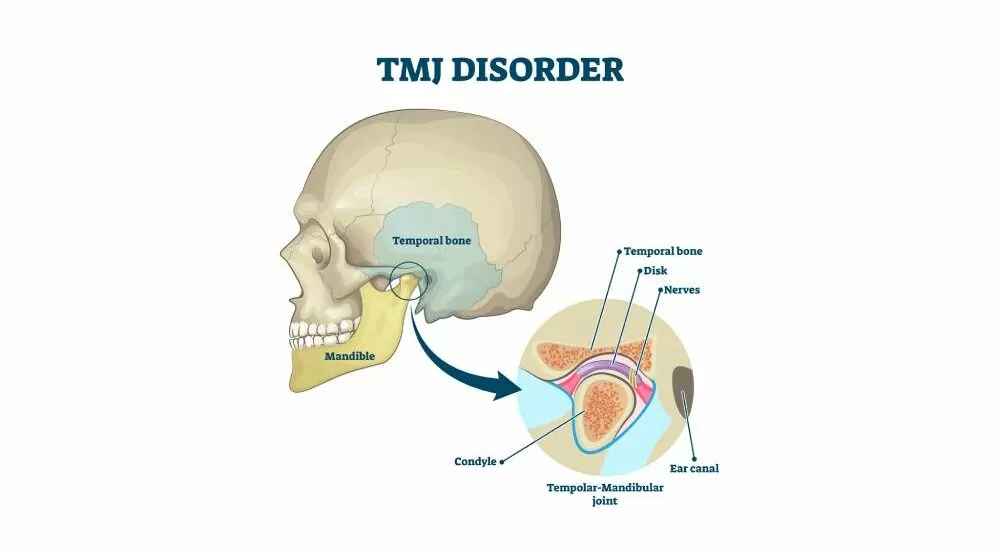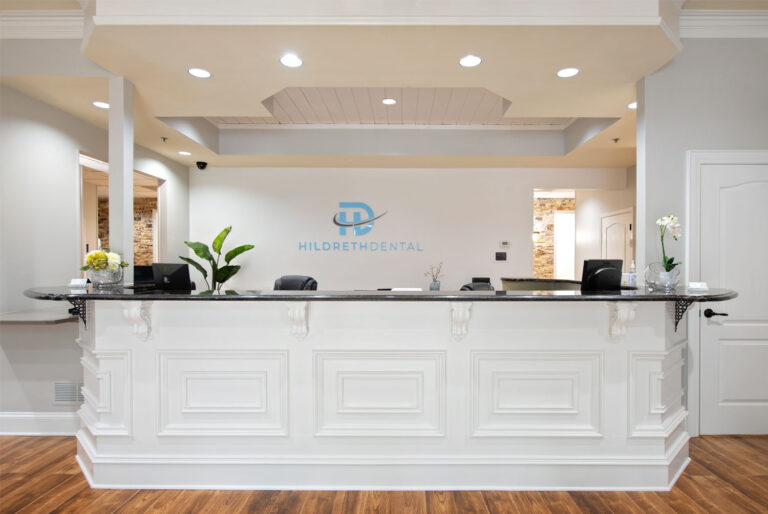TMJ Disorder
There are various treatment options for TMJ that can help alleviate jaw pain and improve your quality of life.
TMJ Treatment in
Acworth, GA
If you ever experience pain or tenderness in your jaw joints, aching jaw, or pain while chewing, it could be due to a Temporomandibular disorder (TMD) such as Temporomandibular Joint Disorder (TMJ). TMJ is a well-known TMD that affects the temporomandibular joint- the hinge that connects the jaw to the skull. This joint is located beneath the ears on both sides of the face.
The exact cause of TMJ is often difficult to identify, but several factors can be examined to see if they apply. Common causes of TMJ are the erosion of the disk between the bones or an out-of-place disk. Arthritis in the jaw joint can also cause pain. Trauma can lead to chronic pain, and people who grind their teeth at night or have high levels of stress are more prone to TMJ. Additionally, there may be a genetic component to TMJ.
At Hildreth Dental, we will explain all the different causes of TMJ and create a personalized care plan for you.

-
How do I know if I have TMJ?
If you suspect you might have TMJ, knowing that only a dentist can officially diagnose this condition is important. However, certain symptoms that you can look out for may indicate that you are suffering from TMJ. It is best to seek medical attention if you experience these symptoms and they do not go away independently.
Although jaw, ear, or facial pain may go away without medical intervention in most cases, sometimes it persists and becomes unbearable. If you find that over-the-counter medications or home remedies are not working, it is advisable to call a dentist immediately.
Some common symptoms of TMJ include pain in the jaw, tenderness in the jaw area, ear pain, difficulty chewing, facial pain, locking of the jaw joint, and headaches.
-
How do you diagnose TMJ Disorder?
To diagnose TMJ Disorder, we will begin by discussing any risk factors that may be contributing to your pain. We will then conduct a thorough examination, which includes listening to your jaw, feeling its movement, and carefully pressing certain areas to determine the source of the pain. Additionally, we may take X-rays or 3D images to get a better look at the joint. An MRI may also be recommended to assess any damage to the disk or soft tissues if necessary.
-
How do you treat TMJ?
When it comes to treating TMJ, we can begin with over-the-counter pain relievers like Tylenol or Ibuprofen to alleviate minor pain and inflammation. If that doesn’t work, some doctors may prescribe an antidepressant that can help with bruxism control and sleep. Additionally, muscle relaxants can provide relief for some patients.
We also offer oral appliances worn at night to help with TMJ. Our hard and soft appliances are custom-fit for you, and they not only provide relief but also protect your teeth from wearing down and other dental work from cracking or breaking under too much pressure.
If oral appliances don’t work, you may need surgical intervention. However, we prefer a conservative approach and will explore alternative treatments such as avoiding foods that overwork the jaw muscles, applying heat and cold to the area, acupuncture, meditation or other relaxation strategies, massage, or physical therapy.
If these treatments do not relieve the pain, we can help connect you with a doctor who can examine your case and determine if surgical intervention is appropriate.
More Questions?
If you have more questions about TMJ treatment or would like to schedule an appointment, contact our office, and we will be happy to discuss further.


